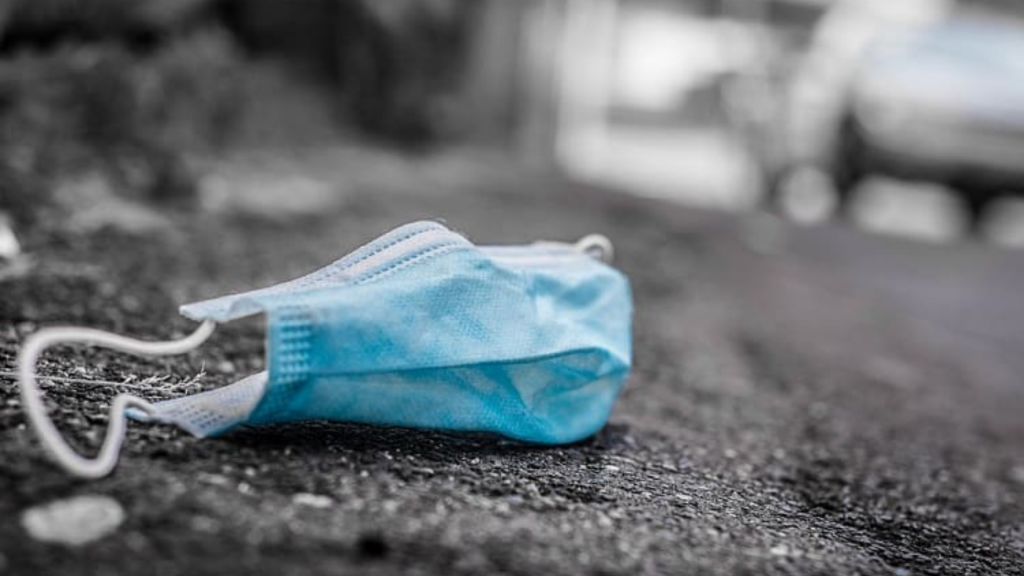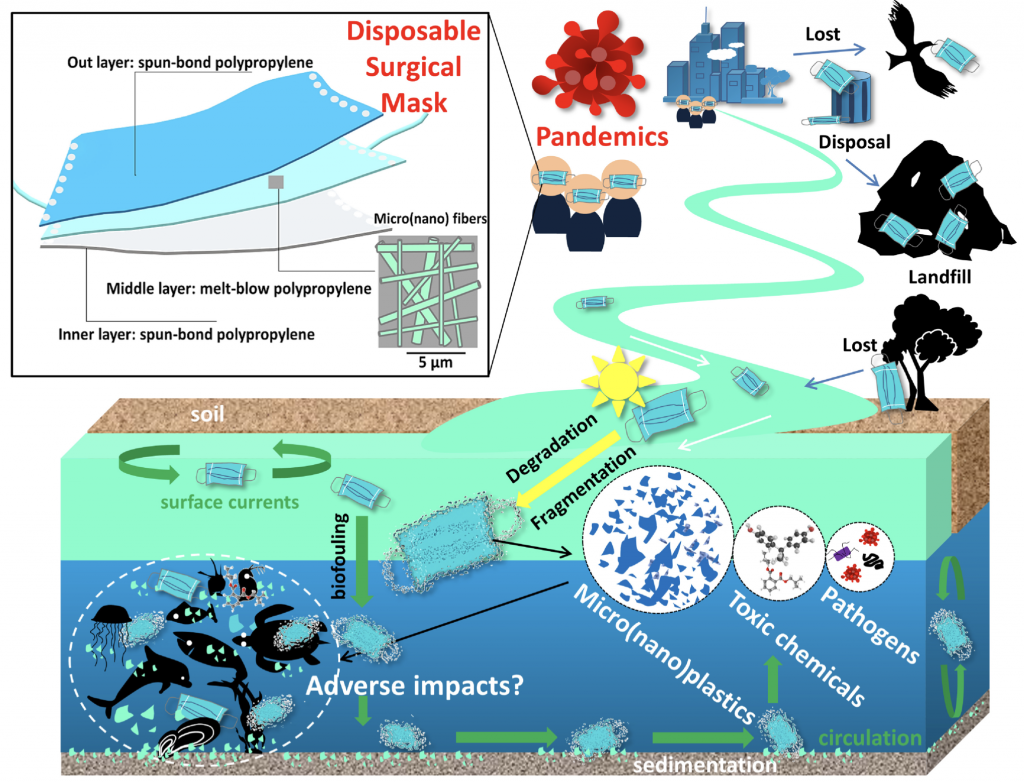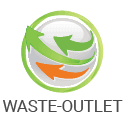It has already been a year since the COVID-19 pandemic turned our lives upside-down. What we want to talk about today is a problem, that we have not recognized soon enough. The disposable masks that a lot of people wear, can be harmful to the environment, if not treated properly. In this article, we will examine what an impact these helpers against COVID-19 might have on our environment in the future, and how we can repurpose and recycle masks.

Impact of disposable masks on the environment and ways to reuse and recycle it
What is the root of the problem?
In their article published on 28 of February 2021, experts Elvis Genbo Xu and Zhiyong Jason Ren talk about some interesting numbers that we would like to share with you, just to get the whole global picture on this issue:
- Recent studies estimated an astonishing 129 billion face masks being used globally every month (3 million / minute) and most are disposable face masks made from plastic microfibers (Prata et al., 2020).
- Plastic products can not be readily biodegraded but fragmented into smaller plastic particles, namely micro and nano plastics that are widespread in ecosystems (Alimi et al., 2018; Nguyen et al., 2019).
- Ingestion of microplastics is known to cause direct adverse effects and also expose organisms to toxic chemicals and pathogenic microorganisms (Vethaak and Leslie, 2016).
Once in the environment, the masks cannot properly dissolve due to the chemical properties of the materials they are made of. Finally, they do dissolve into micro-sized polypropylene particles and further into nanoplastics.
‘’When not properly collected and managed, masks can be transported from land into freshwater and marine environments by surface run-off, river flows, oceanic currents, wind, and animals (via entanglement or ingestion)’’ (Elvis Genbo Xu and Zhiyong Jason Ren)
Read also: ocean-bound plastic – a new trading opportunity on waste-outlet
This image will give you better insight into the impact on the environment.
The potential environmental fates and impacts of disposable surgical masks.

Ways to reuse and recycle masks
There are numerous solutions on how to handle this problem. Portal Medical Expo informs about a couple of them.
Waste management company Terra Cycle came with an interesting and quite simple solution, Zero Waste Boxes, which are designed to collect and recycle PPE, face masks, and disposable gloves. After collection of the waste, it is sorted into categories based on material characteristics. These materials are furthermore recycled into materials that can be used to create new products like outdoor furniture and storage containers.
French startup Plaxtil informs that they were able to recycle 100 000 masks into a solution for surgical, fabric, and FFP2 masks.
Co-founder Olivier Civil said:
“We have set up 50 collection points in pharmacies, shops, or shopping centers. We remove the metal bar from the masks and grind them; the crushed masks are then passed through a UV tunnel to be completely decontaminated in depth. Then, we transform these shreds into PLAXTIL material to be injected into an injection press to obtain objects of protection against Covid-19: mask fasteners, door openers, protective visors, etc.”
More sustainable types of masks are being considered as well, with options varying from Organic, biodegradable to cotton, linen, bamboo, silk, and hemp variations.
Australian Queensland University of Technology (QUT) had an idea to create biodegradable, anti-pollution masks. Now they think they could also develop protection against COVID-19 in a form of breathable nanocellulose material that removes particles smaller than 100 nanometers made from waste plant material, such as sugar cane bagasse.
At the EssentialTech Center of the Swiss Federal Institute of Technology in Lausanne (EPFL), Switzerland, researchers have created The HelloMask which is made from a polymer composition, currently in the process of being patented, which is 99% organic, biomass derivative. Thierry Pelet, Ph.D., Project Leader, said:
“With the COVID-19 crisis and the huge mask consumption by the general public, this is becoming an environmental problem.”
The HelloMask is transparent and breathable, as well as biodegradable and recyclable. It is designed to reveal facial expressions, as well as to filter out viruses and bacteria.
You have to be registered with a free account to see prices and be able to place bids.
Login
Forgot Password
Enter your email below. Password reset instructions will be sent to your email.

